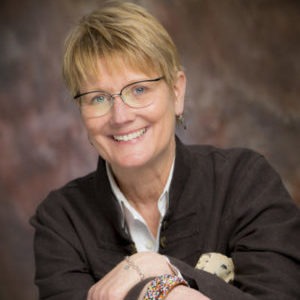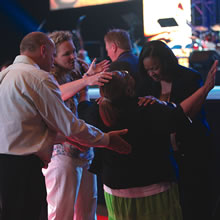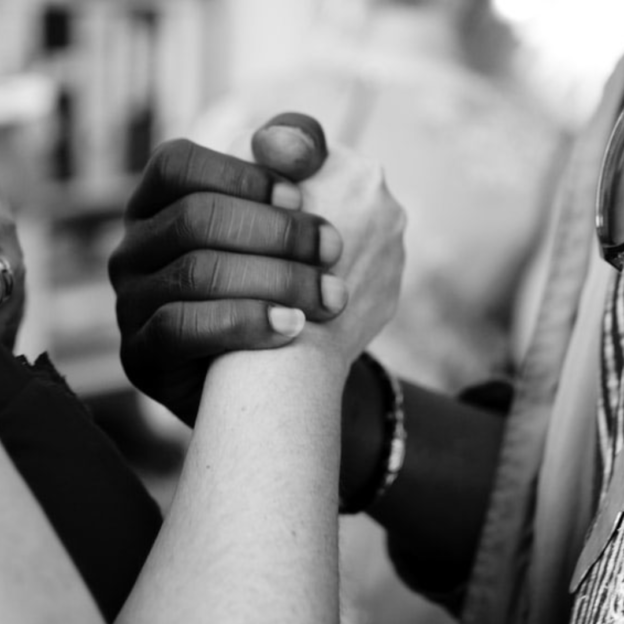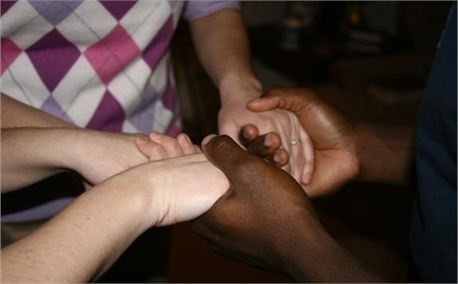By Rev. Dr. Kimberly Reisman
One of my favorite Holy Days is Pentecost, partly because (thankfully) it hasn’t been co-opted by western consumerism. Maybe that’s why it comes and goes without too much attention. We don’t have weeks of lead up like we do for Christmas or Easter; and the Holy Spirit definitely doesn’t have the economic punch of Santa or the Easter Bunny.
Pentecost is usually only recognized on a single Sunday and then we move right into “Ordinary Time.” In 2020, it fell on May 31. With everything happening in our world right now, my hunch is not very many of us noticed.
And yet this one day, and what it marks is integral to understanding Christian faith. This is especially true when it comes to showing and sharing the love of Jesus. Without Pentecost – that miracle of communication – faith-sharing is reduced to a mechanistic step-by-step procedure filled less with love than prescription. But when the Holy Spirit comes, everything mechanical is blown away, and we’re left with the miracle of mouths and ears.
This isn’t new information. Christians celebrate that the Holy Spirit descended on the followers of Jesus, empowering them to speak boldly about his life, death, and resurrection. We celebrate that when the Holy Spirit descended, all the people gathered in Jerusalem for Shavu’ot heard the followers of Jesus speaking in their own language – even though there were Jews from many different lands who spoke many different languages. It was a miracle of communication because it was a miracle of understanding. Everyone was able to understand the good news of Jesus Christ.
Grasping that miracle is an important part of showing and sharing the love of Jesus. When we share the good news of Jesus Christ, we want it to be in a language that other people can understand. We want the words of our mouths to be understandable to the ears of those we hope to reach.
Again, nothing new here, but every now and then it’s important to look at things from a different perspective. What if God isn’t just interested in our mouths, but also in our ears? What if the ongoing Pentecost miracle of communication needs to involve not just what we say, but what we hear as well?
When the Holy Spirit descended that Pentecost morning, it landed on a tiny, frightened, unpopular group of people. They were lying low, staying out of the way, not knowing what the authorities would do next. There weren’t very many of them compared to all the rest of Jews gathered in Jerusalem. They were in the minority, working class Galileans with little power compared to everybody else. These were the mouths the Holy Spirit empowered to speak.
Then there were all the ears that heard on that day. They were from all over. Some were devout Jews who had the means to travel from as far away as Rome. A privileged class. Others lived in Jerusalem – mainstream Jews and maybe even some of the religious elite, like the Pharisees or Sadducees, who had been marking this festival year in and year out with little change. These were the ears that the Holy Spirit empowered to hear.
In these days of crisis and challenge, I’ve begun to wonder who we (at least those of us who identify as white in the global West/North) look like. Are we more like the ragtag group of Jesus followers, with little power, in hiding for fear of what the authorities might do? Or are we more like the visitors from Rome or the other mainstream folks living in Jerusalem, routinely celebrating another religious holiday with little worry or thought of danger? Are we more like the mouths who were empowered to speak or the ears who were empowered to hear?
The global Christian landscape has been changing for quite some time now – shifting significantly south and eastward. In the face of such dramatic change, perspective is crucial. Does the Holy Spirit desire to loose our stammering tongues, filling us with the courage and boldness necessary to speak? Or, is it possible that the Holy Spirit is leading us to become the ears that hear? Is there a word from the Lord that can only come to us through the power of the Holy Spirit opening our ears to voices we have not noticed or have been unwilling to hear?
There are many in the Christian family who resemble the mouths empowered to speak on that first Pentecost day. And there are many as well, who think they are the mouths that spoke, but who actually bear a closer resemblance to the ears that heard. How might our witness be strengthened if we opened ourselves to the miracle of mouths and ears embodied in Pentecost? How might the way we follow Jesus change if we were willing at every step, to discern which was most needful of Holy Spirit empowerment – our mouths or our ears?
As we continue to live out our faith in the midst of divisiveness, fear, and the threat of illness and death, I pray for that kind of discernment – that all of us would be open to the Holy Spirit’s ongoing miracle of mouths and ears.
All of them were filled with the Holy Spirit and began to speak…and they all heard in their own languages. (Acts 2:4, 6 – paraphrased)[/vc_column_text][/vc_column][/vc_row][vc_row][vc_column][vc_separator border_width=”6″][/vc_column][/vc_row]









 [/vc_column_text][/vc_column][/vc_row][vc_row][vc_column][vc_separator border_width=”6″][/vc_column][/vc_row]
[/vc_column_text][/vc_column][/vc_row][vc_row][vc_column][vc_separator border_width=”6″][/vc_column][/vc_row]